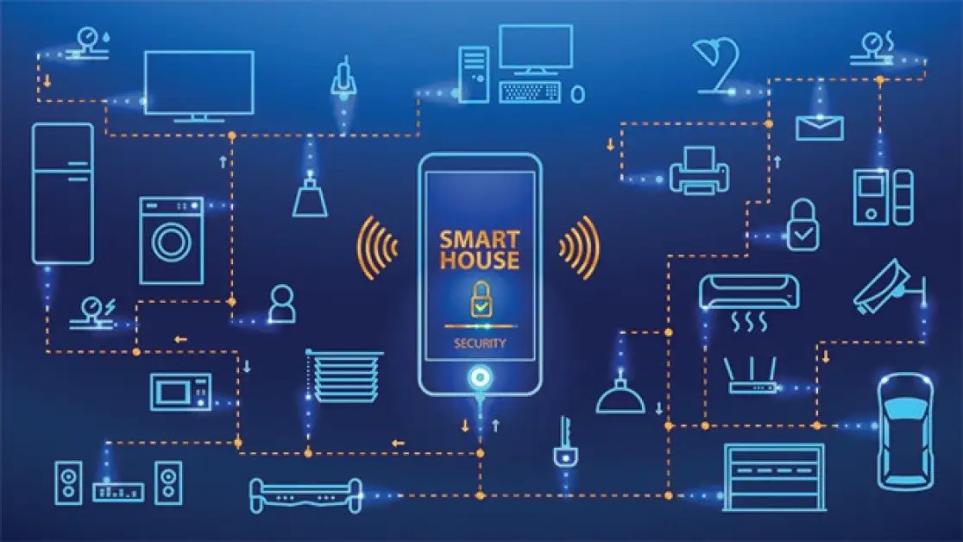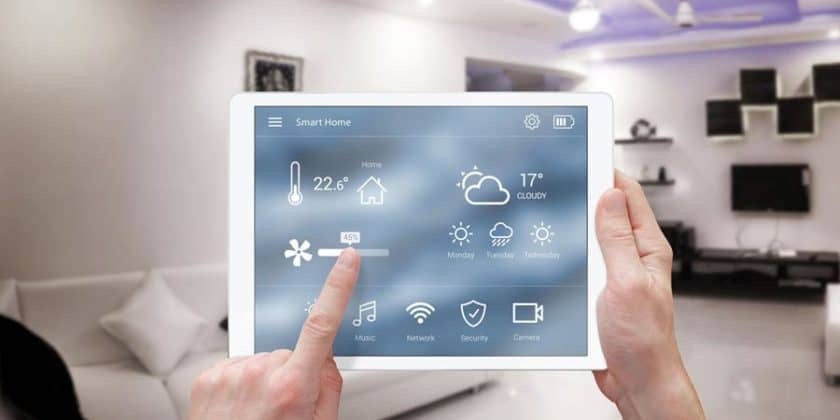To apply artificial intelligence technology in smart home, it is necessary to build an AI system for home with artificial intelligence algorithms. This system is used to realize two types of tasks for home:

- To control household facilities
This type of task requires the system to automatically control the household facilities or adjust the domestic environment according to the user’s habits by analyzing the user’s usage data. For example, thermostat controls the room temperature based on the user’s habits, taking energy saving into account .
- To monitor household status
This kind of task requires the system to analyze household data, reason family events, and automatically make assessments to match related family external services. For example, it needs to analyze the health data of empty nesters and judge the health status of the elderly.
An AI system for home provides people with a more comfortable environment and sound urban services. However, how can we allocate the functions of people and system? At present, the control of smart home can be divided into manual control and supervisory control. Manual control is accomplished by human operation on the control terminal, such as operating the air conditioner on the Tablet PC and controlling the playing of background music by touching the switch on the wall. As to supervisory control, the smart home system automatically completes an operation and informs its owner of the details.

Supervisory control can be divided into setting condition control and automatic learning control. The trigger of setting condition control control is set in advance. Automatic learning control means that the controller uses artificial intelligence technology to automatically learn the operation mode of the equipment according to the habits or preferences of the owner, and automatically sends out control instructions under appropriate conditions.
In the design of a smart home system, what degrees of automation do manual control and supervision control have? Currently, the ethics of artificial intelligence is being established and has not yet formed a system. However, according to the theory of human factors engineering, we can conclude the following principles.
- Task distribution
Some controls must have human involved , such as canceling the alarm of security equipment, using visual intercom to open doors for visitors downstairs, etc. The execution of these actions must be taken by the user. In addition, mandatory allocation should also consider the legal problems between system designers and users. In some operations, the sender of the action must be a person, such as automatically dialing the alarm phone.

- Value balance
In the family, human beings and machines have more advantages to complete certain tasks respectively. For example, human can be more adept in cooking than machines, so it is allocated to us; while washing machine can satisfactory work in washing clothes, so so it is completed by the machine.
- Distribution of affective and cognitive support
This principle is for the unique needs of human beings. Emotional support refers to people’s emotional needs. For example, in some cases, people often feel the pleasure of doing housework, which is also a part of our family life. Cognitive support refers to people’s demand for information in order to prepare for taking actions or making possible decisions. For example, when gas leakage is detected, not only should the valve be closed immediately, but also the owner should be informed in time, and he or she should check and deal with it.




